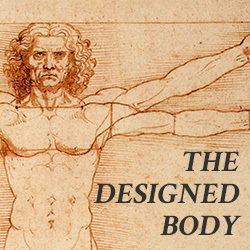Discovery Institute's Blog, page 141
August 3, 2015
The Danger of Capitulating to "Settled Science": Cambridge University Press Book Misrepresents ID
Philosopher James Stump resigned recently from his faculty position at Indiana's Bethel College to join BioLogos, citing differences of views over theological questions relating to human origins. BioLogos, of course, is the well-known center of theistic evolutionary advocacy. The move caught the attention of education reporters, and it adds some interest to a generally favorable review by Stump of a recent book by Benjamin C. Jantzen, An Introduction to Design Arguments (Cambridge University...
Confusing Fantasy with Science

In order for atheism to survive the advance of science, it must come up with a natural explanation for the origin of the universe, the incredible fine-tuning required for the universe to support life, and the origin of life itself.
As our knowledge of physics and cosmology has advanced, scientists have pointed out that the universe appears to be unbelievably fine-tuned to be able to support life. For example, mathematical physicist Sir Roger Penrose has estimated that the "accuracy of the cr...
August 2, 2015
Listen: Behind the Scenes with Living Waters Director Lad Allen

On a new episode of ID the Future, Casey Luskin interviews Lad Allen (above left), director of Illustra Media's newest documentary, Living Waters: Intelligent Design in the Oceans of the Earth. Allen gives a behind-the-scenes look into the making of the documentary, including what it was like to film dolphins and whales off the California coast.

Remember, on August 7 Discovery Institute will host the Northwest premiere of Living Waters at McCaw Hall in Seattle. Join us! For more informatio...
August 1, 2015
Chimps Are Still Chimps, Not Persons

Good news on the human exceptionalism front: A New York trial judge has rejected the specious argument that chimpanzees are "persons" and should have human-type rights.
But that shouldn't make us sanguine since the judge expressed undue sympathy for the cause. From the Science Insider story:
In today's ruling, [NY Supreme Court Justice Barbara] Jaffe seems to express some sympathy for NhRP's [Nonhuman Rights Project} arguments. She writes, for example, that something does not have to be a hu...
July 31, 2015
Cardiovascular Function: What Happens When Real Numbers Are Wrong?

Editor's note : Physicians have a special place among the thinkers who have elaborated the argument for intelligent design. Perhaps that's because, more than evolutionary biologists, they are familiar with the challenges of maintaining a functioning complex system, the human body. With that in mind, Evolution News & Views is delighted to present this series, "The Designed Body." Dr. Glicksman practices palliative medicine for a hospice organization.
 Due to the laws of nature, the body must ha...
Due to the laws of nature, the body must ha...
PETA Says "Hang Hunter!" Who Killed Cecil

PETA -- People for the Ethical Treatment of Animals -- is anti-human.
Animal-rights ideology -- which is sharply distinct from, and inimical to "animal welfare" doctrines -- insists that moral value comes from the capacity to feel pain or to suffer. Some call it "painience."
For a true believer in "animal rights" -- not someone who misuses the term when actually supporting animal welfare -- humans and animals have equal moral value. As PETA's alpha wolf, Ingrid Newkirk, once put it, "A rat,...
The Puzzle of Perfection, Thirty Years On

Thirty years ago in his book Evolution: A Theory in Crisis, Michael Denton (above) posed "The Puzzle of Perfection" as a challenge to Darwinism. He described molecular machines in the cell as phenomena inexplicable by chance. He predicted that what was known in 1985 was sure to grow, concluding:
It would be an illusion to think that what we are aware of at present is any more than a fraction of the full extent of biological design. In practically every field of fundamental biological researc...
July 30, 2015
From Aristotle to Epigenetics: A Report from the 2015 Summer Seminar

This month, over forty undergraduates, graduates, and professionals from around the world, plus some new Discovery Institute staff, gathered in Seattle for our nine-day Summer Seminar, featuring leading intelligent design (ID) scientists and scholars. I was among the new staff on hand for the seminar.
Experts in astronomy, developmental biology, philosophy of science, biochemistry, and more, provided an overview of scientific arguments against neo-Darwinian theory and for design. Morning and...
From the Perspective of Intelligent Design, Killing Cecil the Lion Was an Act of Egregious Vandalism

Wesley Smith has already explained, with his customary sage wisdom, why killing Cecil was very bad stuff, and not to be dismissed by comparisons, however on point, to the gruesome revelations issuing concurrently through candid videos of Planned Parenthood personnel. Wesley will be on the Eric Metaxas radio program tomorrow to discuss the case, and the podcast should be available after that.
UPDATE: Wesley is cited in a Washington Post op-ed too:
Wesley J. Smith of the Discovery Institute's...
It's Time for Second Thoughts about Our Faith in Peer-Reviewed Research

The primary way scientific discoveries and advances are disseminated is through peer-reviewed papers published in scientific journals. For researchers, the first step is to submit a paper to a journal. Those that survive preliminary filtering by the editor are sent out to be reviewed by qualified scientists in the field. On the basis of the reviewers' recommendations, a paper is accepted or rejected. Only a fraction of papers submitted for publication make it through this peer-review process...
Discovery Institute's Blog
- Discovery Institute's profile
- 15 followers




